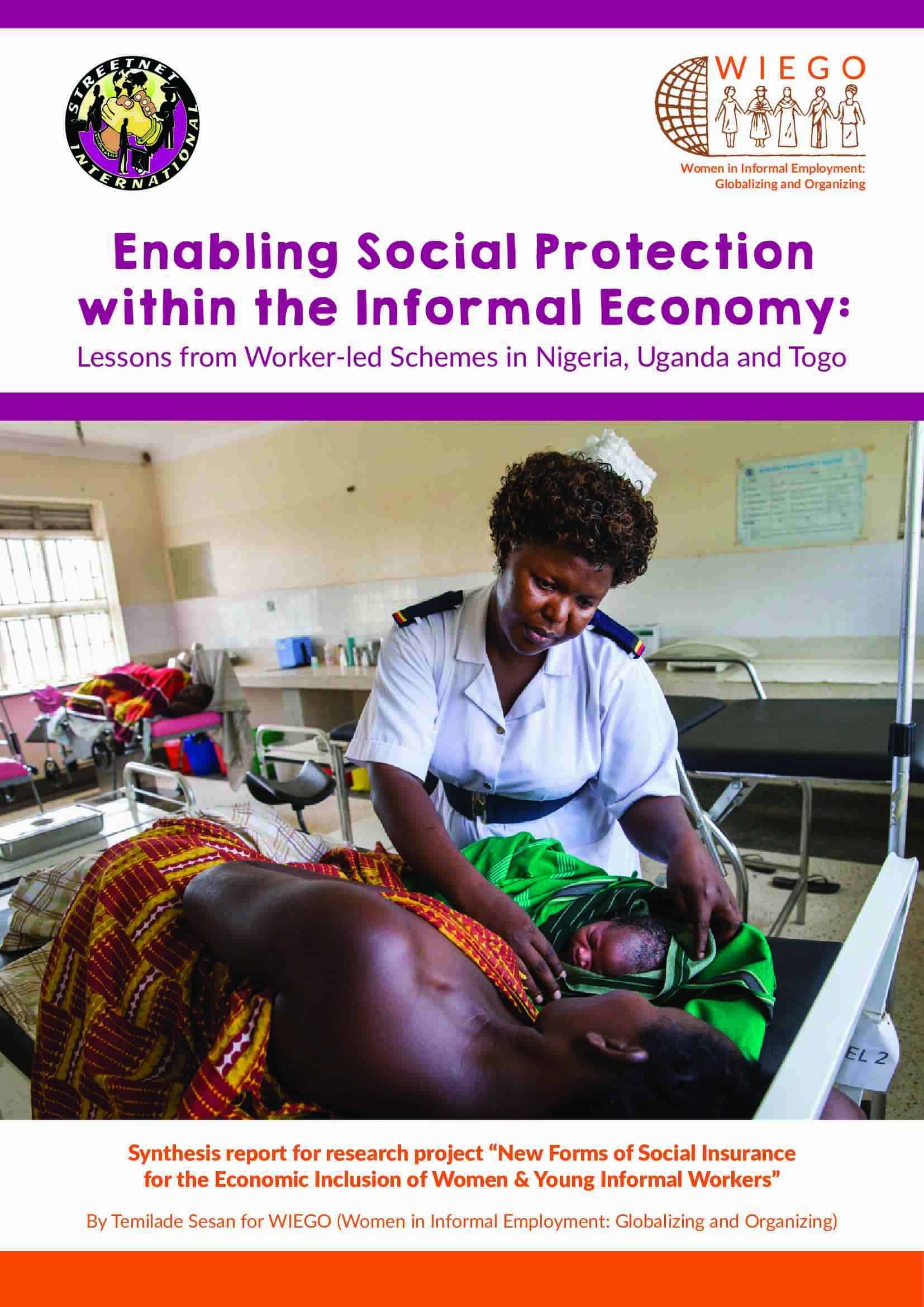Enabling Social Protection within the Informal Economy: Lessons from Worker-led Schemes in Nigeria, Uganda and Togo
This synthesis report, for the “New Forms of Social Insurance for the Economic Inclusion of Women & Young Informal Workers” research project, presents and analyzes the findings from research on informal economy worker-led social protection schemes in Nigeria, Uganda and Togo. In the context of weak formal protections for workers in these countries, the schemes – two of them built on the cooperative model and the third on the mutual model – address the social protection and economic empowerment needs of their members. While there are limits to the content and coverage of these worker-led schemes, they offer important lessons that can inform broader thinking on how to reach informal economy workers with social protection initiatives.
The schemes described in this report are the Federation of Informal Workers’ Organizations of Nigeria (FIWON) multipurpose cooperative; the Kampala Metropolitan Boda-boda Entrepreneurs’ (KAMBE) savings and credit cooperative; and the Mutual Social Protection Scheme for Workers in the Informal Sector (MUPROSI) health mutual in Togo. The analysis highlights the strengths and weaknesses of each scheme, enabling the identification of broad similarities and differences that account for varying degrees of success as well as their implications for the wider social protection landscape. Importantly, the schemes’ relative success in catering to especially vulnerable groups (women in the case of FIWON and youth in the case of KAMBE) offers insights for developing more inclusive social protection programmes.
View list of all: Research Reports

